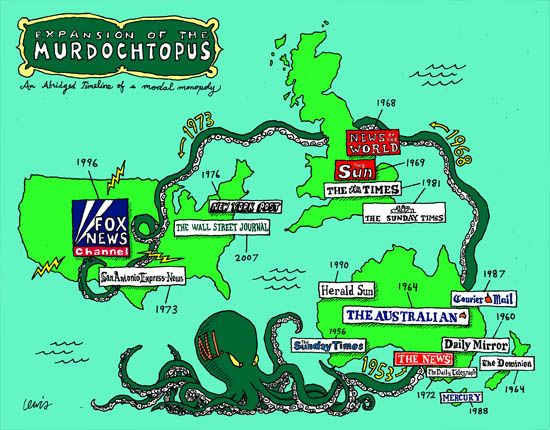
It’s ironic, given that US corporate interests (including one R Murdoch) are complaining about SOPA and how tomorrow/today’s internet blackout is an ‘abuse of power’, that it’s just emerged through the ongoing Leveson Enquiry, that the world’s third largest media conglomerate, News Corp, through one of its prestigious titles, The Times of London, hacked the identity of a prize winning blogger and – apparently without revealing this to the courts – fought a privacy case against him to out his real identity and silence his blog.
The blogger in question was Nightjack, a police officer who blogged so brilliantly about the realities of police work that he won the prestigious Orwell Prize in 2009. A few months later, the anonymous blogger was outed by the Times as Richard Horton. As a result he was reprimanded by his police employers, and his blog was deleted. (The copy above has been retrieved by someone else).
The case caused an outcry in 2009, not only because a valuable voice was lost, by it caused a landmark ruling in the British High Court that a blogger had no “reasonable expectation” to anonymity because “blogging is essentially a public rather than a private activity”.
At the time the Times had argued it had deduced Horton’s identity from the material. But in his written statement today at the Leveson inquiry, the Times Editor James Harding admitted.
“There was an incident where the newsroom was concerned that a reporter had gained unauthorised access to an email account. When it was brought to my attention, the journalist faced disciplinary action. The reporter believed he was seeking to gain information in the public interest but we took the view he had fallen short of what was expected of a Times journalist. He was issued with a formal written warning for professional misconduct.”
However, he failed to mention that the article – written by media correspondent Patrick Foster – was still published, and Horton’s privacy case fought successfully by the Times through the courts.
Not only does this connect the hacking scandal beyond the now closed News of the World and The Sun to Murdoch’s broadsheet titles, it is also yet another example of egregious corporate double standards. While in the witness box today Harding had the temerity to complain that any kind or regulation would chill ‘free speech’.
“We don’t want a country in which the government, the state, regulates the papers … we don’t want to be in a position where the prime minister decides what goes in newspapers,” he said.
He added that if the outcome of the inquiry was a “Leveson act”, even one just offering a statutory backstop to an independent press regulator, it would be unworkable.
“The concern is that a Leveson act would give a mechanism to politicians to loom over future coverage,” of politics, Harding said, and start introducing amendments to this legislation “and that would have a chilling effect on the press”.
This from an editor who was responsible outing a celebrated blogger through hacking and then hounding him to the point of silence
This is a timely reminder that the threats to free speech don’t just come from governments but from corporations too, something I’ve begun to explore in the first chapter of my book (illustrated by Kossack Eric Lewis) Bad Press: Fall of the House of Murdoch (warning – long quote below the fold but I’m only abusing my own copyright)

